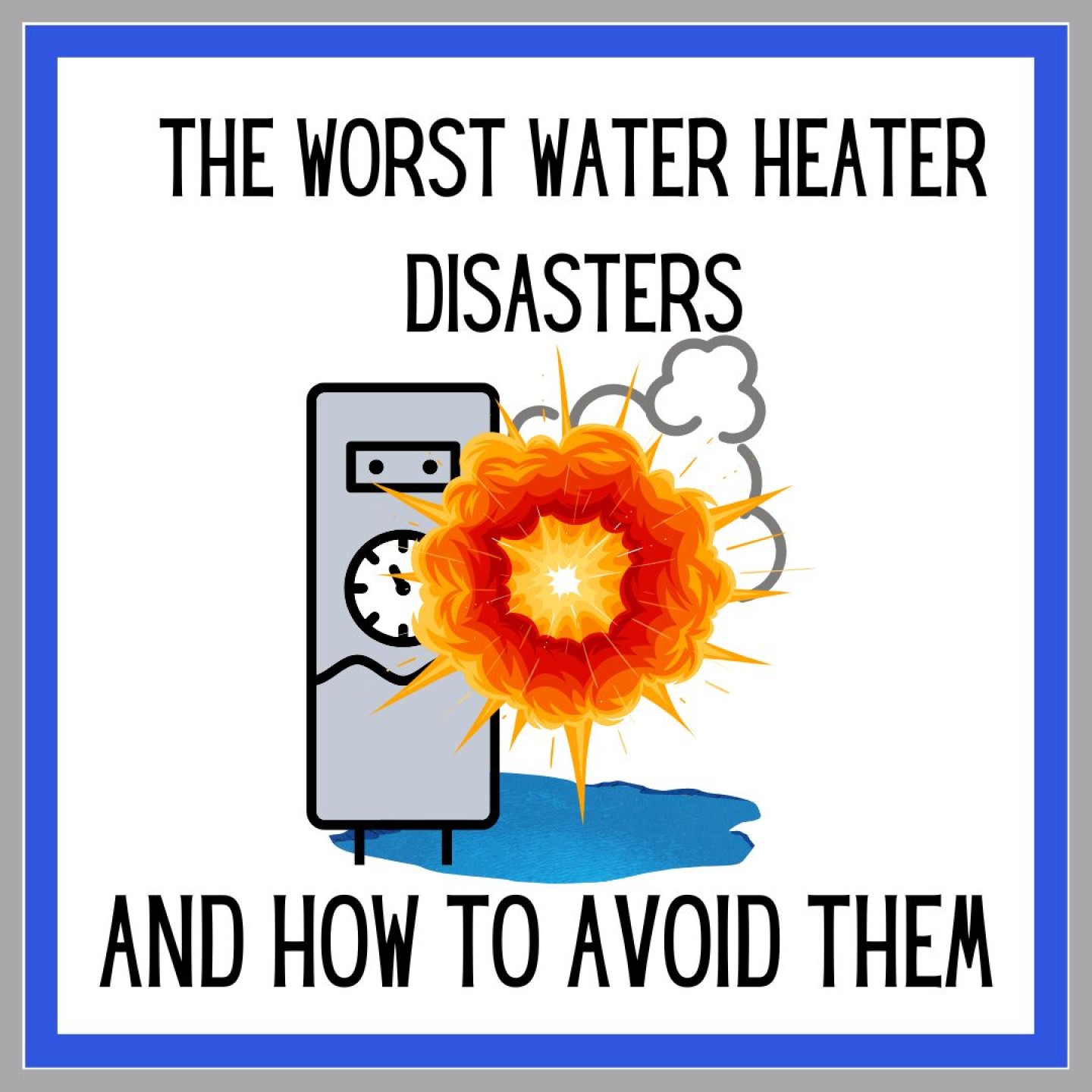Water heater disasters can cause a lot of damage in a hurry. Not only can they leave you without hot water, but they can also cause extensive property damage. In this blog post, we will discuss some of the worst water heater disasters and how to avoid them. We will also provide tips on what to do if disaster strikes.
Water heaters can fail quietly, or loudly, and both can be disastrous.
An example of a quiet water heater fail would be a carbon monoxide leak. Carbon monoxide is a gas that is produced when water heater fuel burns. It is odorless and colorless, so it can be hard to detect. If you have a water heater that uses natural gas or propane, it is important to have a carbon monoxide detector in your home. Water heaters can develop a carbon monoxide leak when they are not properly vented.
Often when homeowners or landlords DIY their water heater installation, they neglect to assess whether the ventilation pipe width is the appropriate size for the water heater being installed. And even when the ventilation pipe is the proper width, there is always a chance for blockage, especially if the water heater is located in an attic or crawl space.
If you suspect a carbon monoxide leak, it is important to get out of the house immediately and call 911. Do not re-enter the home until it has been determined safe by emergency personnel.
To avoid this disaster, be sure to have your water heater maintained by a professional who can identify these issues. If you install a water heater yourself, use a portable CO2 Detector (as little as $30 on Amazon) to test the area near the ventilation, and be sure to install a permanent CO2 detector near your appliances as well.
A loud water heater fail would be a water heater explosion.This can happen when water heaters are not properly maintained. Over time, sediment can build up in the bottom of the water heater. When this happens, it can cause the water heater to overheat and even explode. We've seen entire walls blown out due to these disasters. And thank goodness no one was in the room at the time. To avoid this, it is important to have your water heater serviced by a qualified technician every year. While sediment buildup causing a full on explosion is rare, even minor sediment issues can severely impact the efficiency of you water heater and shorten its lifespan.
The third, and perhaps most common water heater disaster would be the flood. It often doesn't occur to homeowners just how much damage can be caused by a little water. The average water heater holds about 50 gallons of water. When that water heater bursts, it can cause a lot of damage in a hurry. It is important to know where your water shut off valve is located so that you can turn it off quickly if your water heater begins to leak. It is also a good idea to keep a few towels near the water heater in case of a leak.
The water damage from a broken water heater can be extensive. It can cause water damage to the floors, walls, and ceiling of your home. In some cases, it can even lead to mold growth. If you have a water heater that is located in your attic or crawl space, the water damage can be even worse.
To avoid a water heater flood, be sure to check your water heater regularly for signs of leaks. If you see any water on the floor around your water heater, be sure to shut off the water and call a qualified technician right away.
If you do find yourself in the middle of a water heater disaster, there are some things you can do to minimize the damage. First, shut off the power to the water heater. If the water heater is gas-powered, shut off the gas supply as well. Next, open all of the faucets in your home to release the pressure from the water lines. This will help prevent any further damage to your plumbing system. Finally, call a qualified technician to come and assess the damage and make any necessary repairs.
Call Jersey Plumbing Service (908) 281-7101 for water heater maintnenance and installation in North Jersey.
For Signs Your Water Heater is Failing, Click Here.

Recent Comments